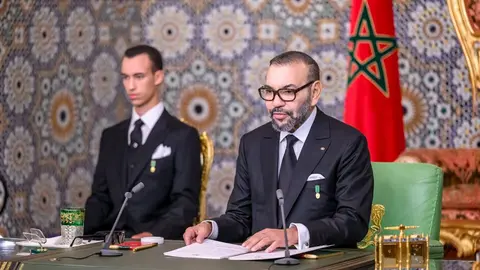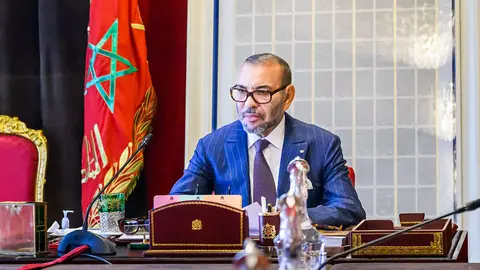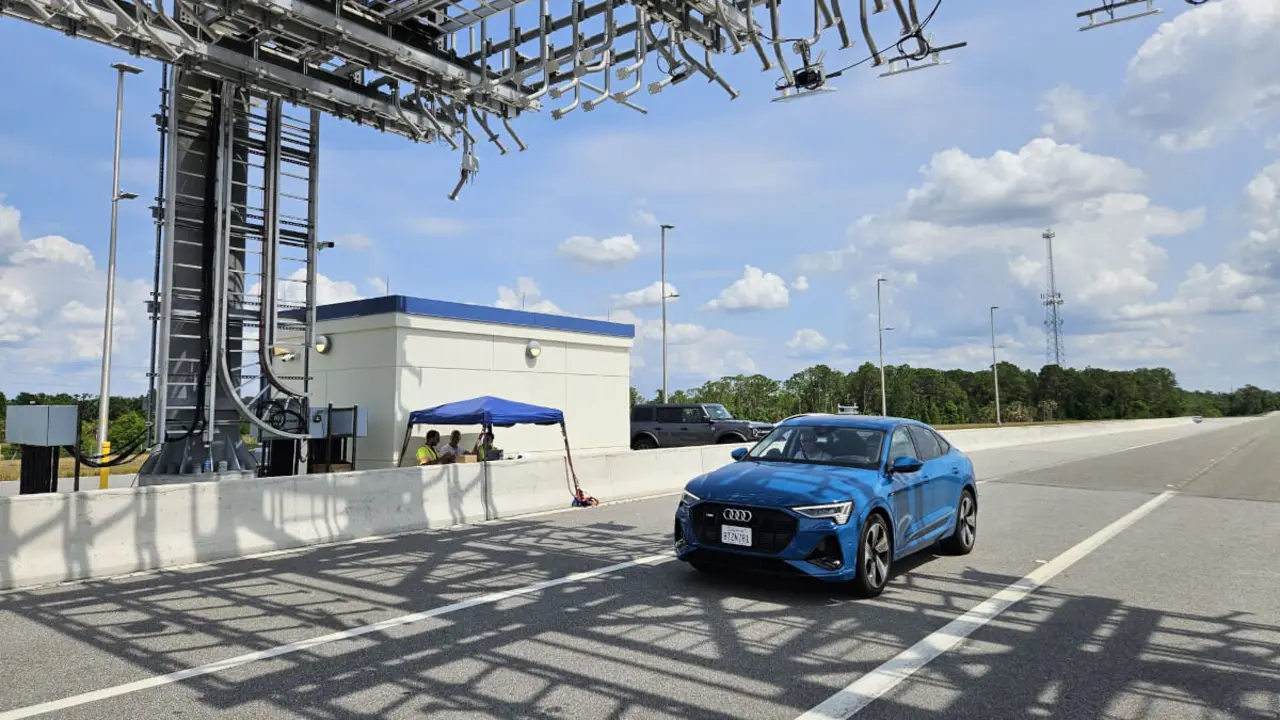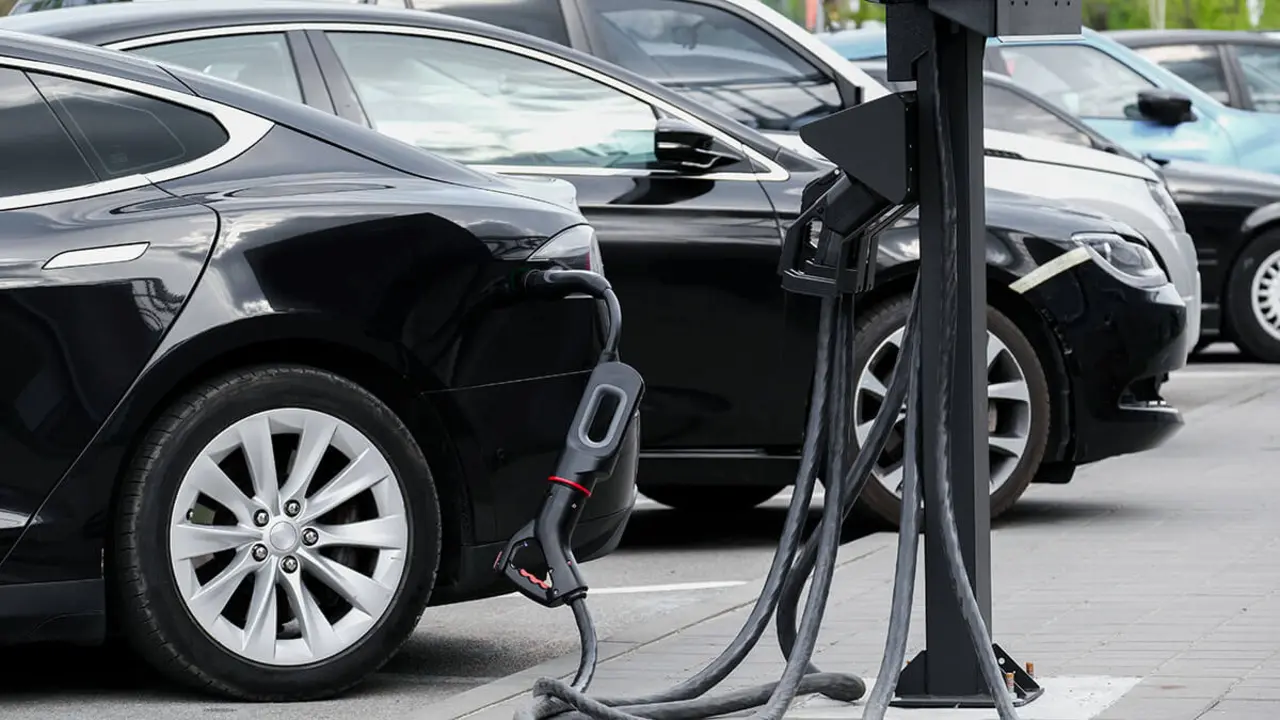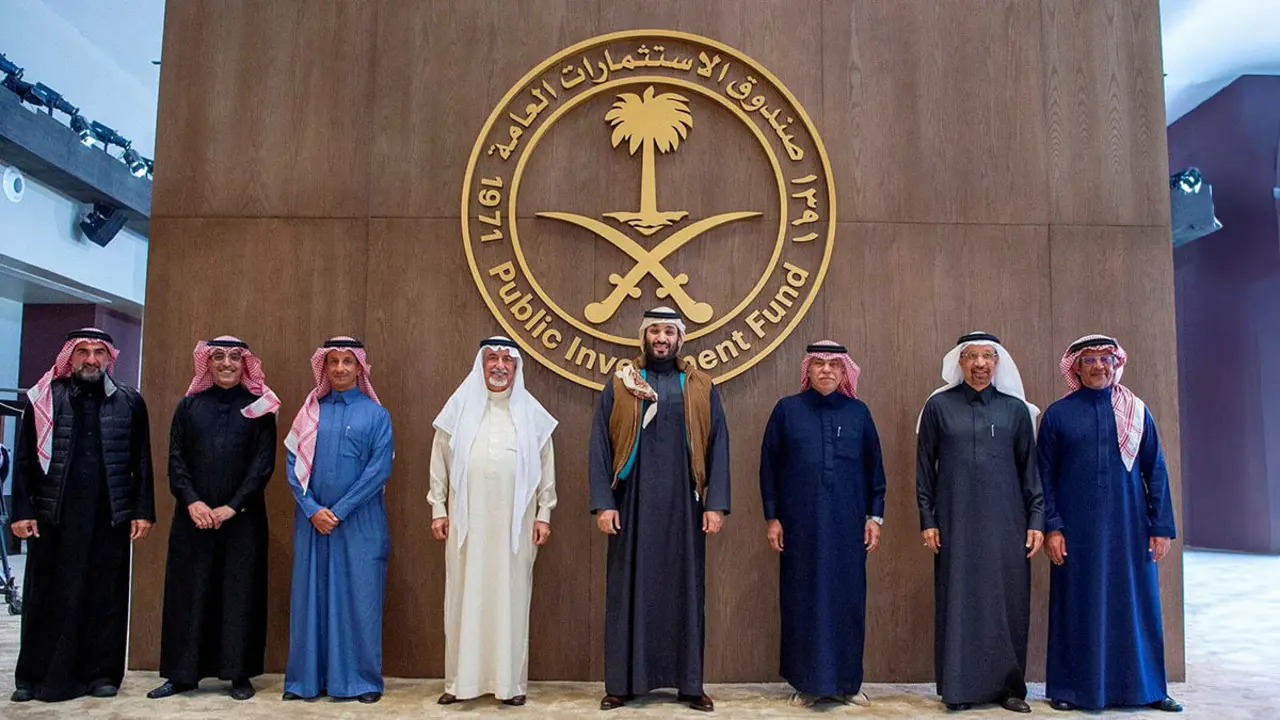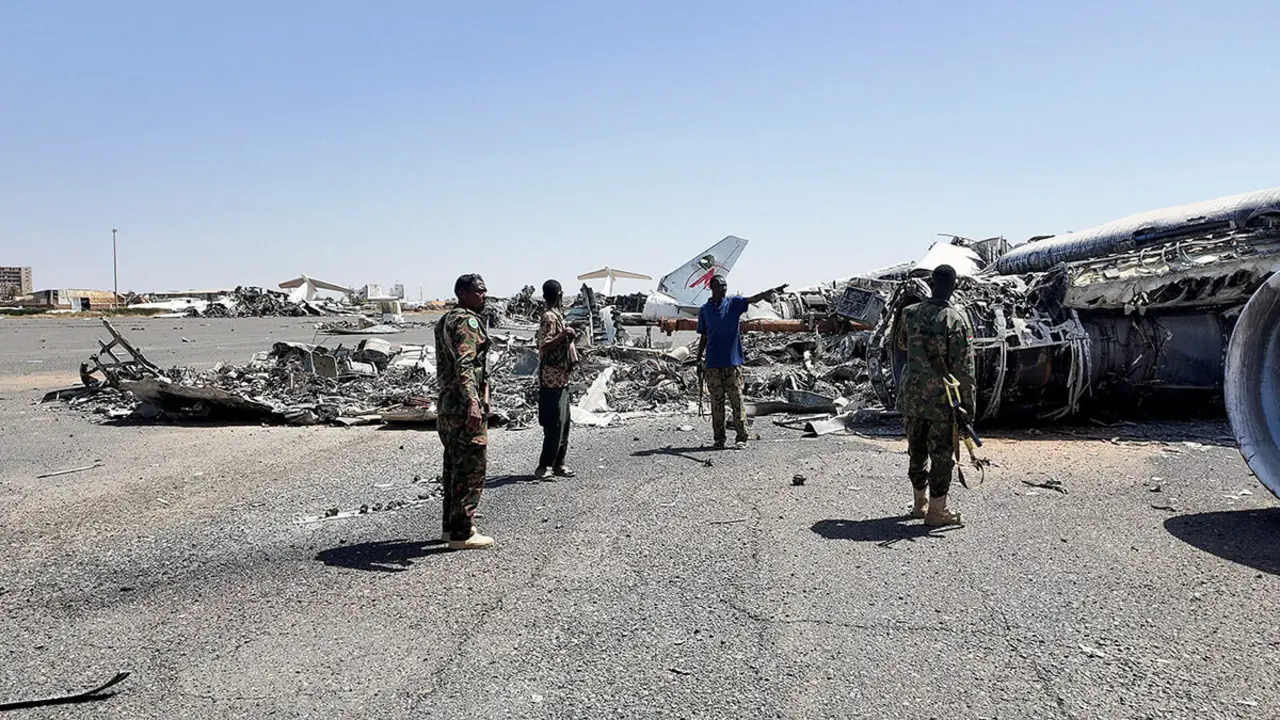King Mohammed VI's message at the Ibrahim Governance Weekend 2025 that could transform millions of lives in Africa
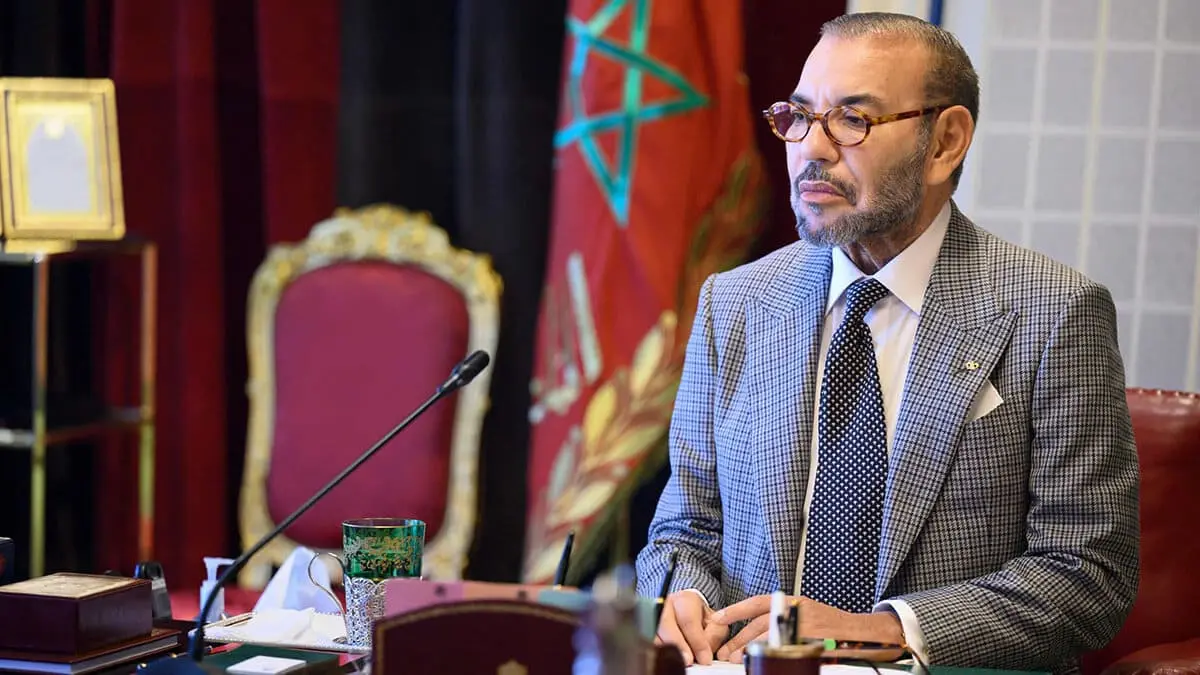
The King of Morocco, Mohammed VI, has delivered a momentous speech at the Ibrahim Governance Weekend 2025, organised in Marrakesh from 1 to 3 June by the Mo Ibrahim Foundation, which seeks to address the issue of financing development in Africa, in the presence of leading figures from the worlds of politics, economics and civil society.
The message delivered by the Alawite monarch at this year's Ibrahim Governance Weekend Forum is vital for the future of Africa because of its strategic approach to the future of the African continent, redefining the established balance of power and focusing on freeing Africa from the heavy financial burden weighing on the continent.
The King of Morocco has called for financing for Africa that is tailored to its needs. ‘Africa cannot develop without financing tailored to its needs,’ said the Moroccan monarch. ‘There is no doubt that without sufficient financing tailored to its specific needs, Africa will not be able to carry out its reforms and development projects,’ explained the Moroccan monarch.
This guideline protects a continent that is poor and does not have trade relations on the same level as other continents, such as Europe or Asia. Africa's share of world trade does not exceed 3%. Similarly, intra-African trade accounts for 16% of the total volume of trade on the continent, compared to 60% in Europe and 50% in Asia. These are therefore very disparate figures.
For King Mohammed VI, without money there is no sovereignty, and without sovereignty, Africa will continue to suffer from great dependence, vulnerability and fragmentation.
The monarch also alluded to the fact that Africa cannot constantly depend on foreign aid and charity: ‘Africa can no longer depend on official development assistance’.
This is therefore a declaration of economic independence for Africa, a change in the financial paradigm.
‘Our continent must transform these challenges into opportunities, capitalise on its strengths, assert its vision of self-development and take full control of its destiny,’ said the Moroccan king, who stressed that ‘external aid is slow, conditional and sometimes toxic’ and that ‘it creates debt, not wealth’.
Morocco, through the Alawite monarch, proposes to mobilise its own resources and end its toxic dependence on foreign aid.
The royal message is based on four specific pillars:
- Self-financing through transfers, innovative mechanisms and macroeconomic reform.
- Creating a climate conducive to investment through good governance, justice and investor protection.
- Boosting intra-African trade by activating the African Continental Free Trade Area (AfCFTA), thereby overcoming the barrier that African trade accounts for only 3% of the global total.
- Transforming African resources, moving from extraction to local added value.
The doctrine outlined is based on seeking greater development for Africa based on financial autonomy, avoiding dependence on foreign aid and mobilising its own resources, while also creating innovative financial mechanisms and maximising remittances from the diaspora.
It is also based on the creation of solid institutions, which are essential for African development. For the Alawite monarch, ‘there can be no development without exemplary governance’. All this must be accompanied by total transparency, a relentless fight against corruption, investor protection and an optimal business climate.
African integration is essential, according to the Moroccan king. In this regard, the African Continental Free Trade Area will be a major change. The AfCFTA is a trade agreement that seeks to create a single continental market for goods and services, facilitating intra-African trade and the economic integration of the continent. It is an area of 1.3 billion consumers, with a single market and continental value chains. This scenario would give Africa great commercial and financial autonomy.
It is therefore important for Africa to boost its internal trade as a continent and not encourage the export of raw materials to other countries. In other words, it must exploit its raw materials with its own industry and take advantage of raw materials and local production to boost trade within the continent itself. This commercial and financial autonomy would result in a strong continent capable of competing economically with other parts of the world.
It should be borne in mind that Africa has 40% of the world's raw material reserves and 30% of critical minerals. This would be a powerful scenario for the African continent if it were able to manage it autonomously and without depending on foreign powers.
This is the path that Morocco is following and it is trying to set an example for the rest of the African continent. The guidelines set out by King Mohammed VI since his accession to the throne in 1999 have been clear throughout these years. The plan has been to modernise and industrialise all sectors of the economy, promoting national economic and commercial development and attracting the foreign investment needed to strengthen the country's economic and productive fabric through significant benefits and attractive state measures such as major tax cuts, streamlining bureaucratic procedures and injecting capital to promote foreign investment.
Thus, Mohammed VI's speech at the Ibrahim Governance Weekend 2025 Forum in Marrakesh is based on real and practical facts implemented by the North African country itself. Since his accession to the throne, King Mohammed VI has supported specific projects and strategic infrastructure such as the Nigeria-Morocco Atlantic Gas Pipeline, the Atlantic Initiative for the Sahel countries, which seeks to facilitate access to the Atlantic Ocean for Sahelian countries with few resources in order to promote their development, the Casablanca Financial City and the Mohammed VI Investment Fund.
However, it is not just a question of money; the system needs to be reformed. ‘Africa is marginalised in the development of the global financial system’ and that must change, according to the Alawite monarch, who has called for a reform of the international financial architecture, equitable access to credit, tariffs adapted to our realities and an end to excessive fees on remittances from the diaspora.
‘Africa demands respect, not charity,’ as the Moroccan king explained.
‘We firmly believe that financing development in Africa requires collective action combining regional and international cooperation. The fundamental debate on the reform of the international financial architecture should adopt a multilateral approach, fully involving African countries, which are too often marginalised in the process of drawing up the rules of the global monetary and financial system,’ said King Mohammed VI.
The full text of the message from King Mohammed VI of Morocco, read by His Majesty's advisor, Mr André Azoulay, is as follows:
‘Praise be to God,
May the peace and blessings of Allah be upon the Prophet, his family and his companions.
Mr. Mo Ibrahim, President of the Foundation,
Ladies and gentlemen,
We are pleased to send you this message on the occasion of the 2025 edition of the ‘Ibrahim Governance Weekend’, held under Our High Patronage in Marrakech, in the presence of an assembly of distinguished personalities from the world of politics, economics and civil society, who have come to discuss the eminently important topic of financing Africa's development.
This meeting offers a unique opportunity to deepen the debate on a topic that remains relevant today, so that, ultimately, we can work collectively to shape the future of an emerging Africa worthy of the legitimate aspirations of our peoples.
We take this opportunity to commend the ongoing efforts of Mr. Mo Ibrahim and his Foundation, which make a remarkable contribution to enriching the debates on Africa's development and to the formulation of innovative solutions to the major challenges of today and tomorrow.
Ladies and gentlemen,
Our continent is bearing the brunt of the repercussions of multidimensional international crises, in particular the widening disparities and inequalities between countries and regions. This situation reduces the effectiveness of measures taken to achieve the Sustainable Development Goals by 2030 and therefore affects the realisation of our vision of a rich and prosperous Africa.
However, these cyclical challenges must not in any way undermine our common will to move forward. Better still, our continent must transform them into opportunities for development and growth, enhance its assets, affirm its vision of its own development and take full control of its destiny.
But there is no doubt that without sufficient financing tailored to its specific needs, Africa will not be able to carry out its reforms and development projects. Furthermore, the mobilisation of resources, which remains a prerequisite for achieving sustainable and inclusive growth, is an essential condition for the structural transformation of African economies.
In this regard, we would like to highlight four guidelines for inclusive and sustainable development in Africa:
1-A paradigm shift in development financing: our continent must mobilise more of its domestic resources and undertake structural reforms to strengthen the macroeconomic framework. It must also develop innovative mechanisms to finance development and effectively benefit from transfers from the African diaspora. Indeed, Africa cannot rely solely on official development assistance or external financing, which, by definition, generate debt.
2-Establishing an institutional, economic and social environment conducive to development: to encourage investment, entrepreneurship and, ultimately, job creation, it is essential to accelerate reforms relating in particular to good governance, improving the business climate, strengthening transparency, protecting investors, fighting corruption and improving the integrity of the justice system.
3-Strengthening and boosting intra-African trade: the economic integration of the continent is no longer an option but an imperative in a globalised world where Africa's share of world trade does not exceed 3%. Similarly, intra-African trade accounts for 16% of the continent's total trade volume, compared with 60% in Europe and 50% in Asia.
In this regard, the launch of the African Continental Free Trade Area represents a real opportunity to stimulate trade between African countries and make it a catalyst for the continent's growth and sustainable development, promote industrialisation and strengthen the flexibility of African economies and their attractiveness for investment.
4- Full exploitation of the continent's natural resources: with 40% of the world's raw material reserves and 30% of critical minerals, as well as considerable potential in mining, energy, water, agriculture and biology, Africa can no longer simply export its raw materials.
The time has come for Africa to take full advantage of its enormous wealth, create added value and generate income to finance its development. However, this objective can only be achieved through investment in the transformation and local development of its natural resources, the creation of regional value chains that drive industrialisation, job creation and the consolidation of regional and sub-regional integration.
Ladies and gentlemen,
Morocco is establishing itself as a strategic catalyst for South-South partnerships and thus plays a natural bridging role between the different regions of the continent and the countries of the South. This has led it to launch concrete and structuring projects that will sustainably transform the economic and social landscape of the continent.
This direction is taking shape through projects of continental scope, such as the African Atlantic Gas Pipeline (AAGP), which constitutes a true corridor for integration and economic development.
It is in this same spirit and in accordance with an approach based on solidarity and co-development that we recently launched the Atlantic Initiative to promote access to the Atlantic Ocean for the Sahelian states. The ultimate goal is to lay the foundations for a new model of regional cooperation. We also initiated the Rabat Process in the Atlantic African countries, for mutual benefit.
Furthermore, Morocco's experience in strategic sectors such as renewable energy, sustainable agriculture, financial services and transport infrastructure is a key factor in the development of synergies at the continental level.
Aware of the crucial importance of financing, Morocco has also adopted a strategic approach based on the development of innovative financial mechanisms and the effective mobilisation of national resources.
In this regard, the Mohammed VI Investment Fund has established itself as a genuine financial catalyst capable of stimulating private investment, supporting SMEs, promoting technological innovation and driving sustainable development. Similarly, Casablanca Finance City has succeeded in positioning itself as a major regional financial centre, channelling significant financial flows to our continent.
Ladies and gentlemen,
Development cannot be decreed; it is built through ambitious policies, investment in human capital and rigorous economic governance.It is therefore necessary to join forces at the national, regional and global levels to fill the development financing gap and thus contribute to the emergence of the Africa we are calling for.
However, today more than ever, as the 2030 deadline for the Sustainable Development Agenda approaches, the issue of financing Africa's development must be placed at the centre of the international agenda.
Reducing the high interest rates imposed on African countries in international financial markets, access to financing on favourable terms and low-interest loans, strengthening the capacity of regional financial institutions to support African economies, improving the representation of Africa, in all its diversity, within the international financial system, and reducing taxes on remittances from the African diaspora are all legitimate demands that must be addressed.
In the same vein, the holding of the Fourth International Conference on Financing for Development in Seville at the end of this month offers African countries an opportunity to continue this call for urgent solutions.
Ladies and gentlemen,
We firmly believe that financing development in Africa requires collective action combining regional and international cooperation. The fundamental debate on the reform of the international financial architecture should adopt a multilateral approach, fully involving African countries, which are too often marginalised in the process of shaping the rules of the global monetary and financial system.
This essential review must ensure, more specifically, the strengthening of Africa's legitimate representation in international bodies, thereby enabling African actors to take genuine ownership of the issues raised and their solutions.
In conclusion, we would like to emphasise that financing development in Africa is a major challenge that requires innovative and supportive solutions tailored to the realities of the continent.
The Kingdom of Morocco, faithful to its constructive vision of South-South cooperation and driven by its unwavering commitment to inclusive and sustainable growth, in the best interests of the African peoples, will continue to play a key role in the efficient mobilisation of resources, the strengthening of strategic partnerships and the promotion of efficient and effective financial mechanisms.
We thank you for your attention and implore the Almighty to crown your efforts with success.
Wassalamou alaikoum warahmatoullahi wabarakatouh.’

